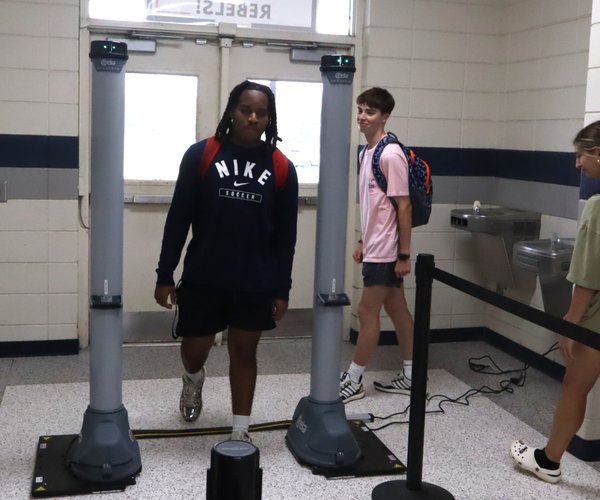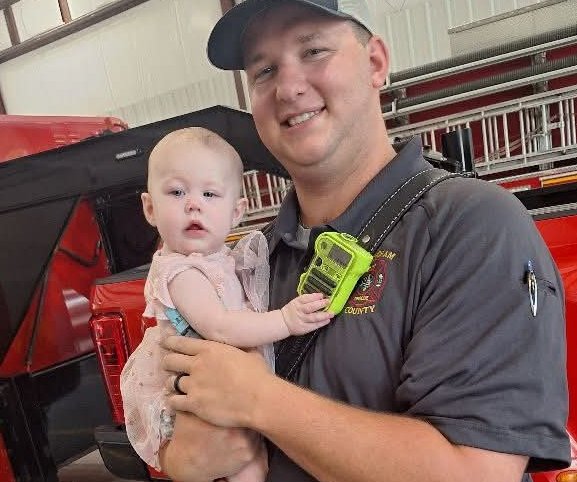By Jeff Whitten, for the Effingham Herald
When Sewon begins production in June, the Hyundai supplier will be the latest result of years of working to bring industry into Effingham County.
Officials say that’s a must in a community where about 60 percent of the labor force commutes somewhere else to work.
And in a fast-growing area where local governments need residential property taxes to fund operations -- and where the growing population increases the demands on those same local governments to provide services -- industrial growth can help keep property taxes from rising, proponents say.
Sewon invited local officials to visit a plant and meet with the company’s leadership earlier this month.
Much of the work to attract industry on a local level is done by the Effingham County Industrial Development Authority (ECIDA), headed up by Chief Executive Officer Brandt Herndon.
“The Effingham County Industrial Development Authority’s purpose is to help foster a thriving and sustainable economy by leveraging the resources and strengths of the community to attract private investment, create quality jobs, and improve economic opportunities for Effingham County residents,” Herndon said. “We achieve this mission through a variety of initiatives geared toward business attraction and retention, infrastructure improvement, workforce development, and strategic marketing and promotion efforts.”
Herndon adds, “The key to a successful economic development program is teamwork. We couldn’t do what we do without the support of local stakeholders, industries, education partners, and government agencies.”
On the ECIDA’s page on Site Selectors Guild, the authority’s reason for its constitutionally mandated existence is worded slightly differently.
“Our legally defined purpose is to develop and promote the public good and welfare of Effingham County, Georgia,” it said.
And that public is growing fast.
More than 71,000 residents currently call Effingham County home, according to information provided to residents during a recent town hall presentation by District 3 Commissioner Jamie DeLoach. That’s an increase of approximately19,000 from the county’s 2009 population of nearly 52,000.
There’s no indication the trend of newcomers will stop anytime soon. New subdivisions are going up fast – more than 3,060 new homes, a number that includes apartments and townhomes – are currently on the drawing board, and 654 residential construction permits were issued in 2023, according to the county.
At the same time, industrial growth has been picking up steam.
Over that same 15-year period beginning in 2009 which saw the county add nearly 20,000 new residents, 27 industries set up shop in Effingham County, adding approximately 2,000 jobs in fields as varied as manufacturing, distribution, and technical services.
And that’s not counting No. 28, Sewon, which is promising to provide 740 jobs and $300 million in investment. It will manufacture chassis for the electric vehicles at Hyundai’s Metaplant America in Bryan County. Both plants are beginning production earlier than previously anticipated.
In all there are 47 industries doing business in Effingham, according to the ECIDA, the oldest being Exley Lumber, which began in 1940 and now has 17 employees. The next in line in chronological order on ECIDA’s list didn’t come along until 1979. That is Georgia Power’s Plant McIntosh.
Georgia Pacific, once known as Fort Howard, opened up for business in 1986 and, with 950 employees, remains the largest private industry in Effingham.
While it’s difficult to pin down how much industry has helped fund local government over the decades since the ECIDA has been in operation, more recent figures shared at the recent town hall presentation show more than $1 billion in taxable industrial property to the tax digest, which added $6.6 million to school district coffers and $3.5 million for the county.
According to the IDA, residential property taxes make up approximately 60 percent of county revenue, industrial property tax makes up around 30 percent.
That revenue equals the taxes paid by 5,164 homes, according to the town hall presentation.
But while diversification of any tax base helps to protect the tax base if one segment of it shrinks, adding industry won’t necessarily reduce property taxes, officials say.
That’s because quality of life costs money. And so do government services. If you want a 911 operator to answer your call and an ambulance or firefighter to come to your home, you have to help pay for it.
In other words, there is no such thing as economy of scale when it comes to government.
The more people you serve, the more services they need and the more it costs to provide them. That works in schools – more kids need more classrooms, need more teachers, etc. – and public safety and everywhere else.
A handful of illustrations from DeLoach’s District 3 town hall held earlier this year sums up the impact the county’s ongoing growth spurt is having of late. One notes 911 calls in Effingham County went up 65 percent from 2021 to 2023, or from 80,081 to 122,638. EMS calls rose from 7,614 to 7,867. Fire calls went from 4,832 to 5,769 over the same period.
Increases in participation in rec department programs are also increasing, a lot – for example, spring baseball and softball, the largest of the spring sport programs, saw participation climb from 868 to 1,191 from 2021 to 2024.
And a sport that wasn’t even around in 2021 in Effingham County, pickleball, now has 200 participants.
While the county’s population is booming, the pressure on local roads is such that one candidate for a county commission seat took out an advertisement promising to solve traffic problems. That those problems are years in the making notwithstanding – in 2017, a $6.6 million diverging diamond in Port Wentworth at I-95 was aimed at ending backups on Highway 21, only to see backups again a frequent part of commuter’s lives – the ECIDA estimates now more than 18,000 workers regularly leave Effingham County to work in Chatham and other counties, and then return home.
Good paying local jobs in Effingham County, officials say, give residents now and in the future the opportunity to work and live in Effingham County, which could alleviate traffic congestion as well as pump more money into the local economy – think lunches, gas purchases, groceries, and give residents more time at home.
Jeff Whitten is a freelance writer and 30-year resident of Effingham County.








